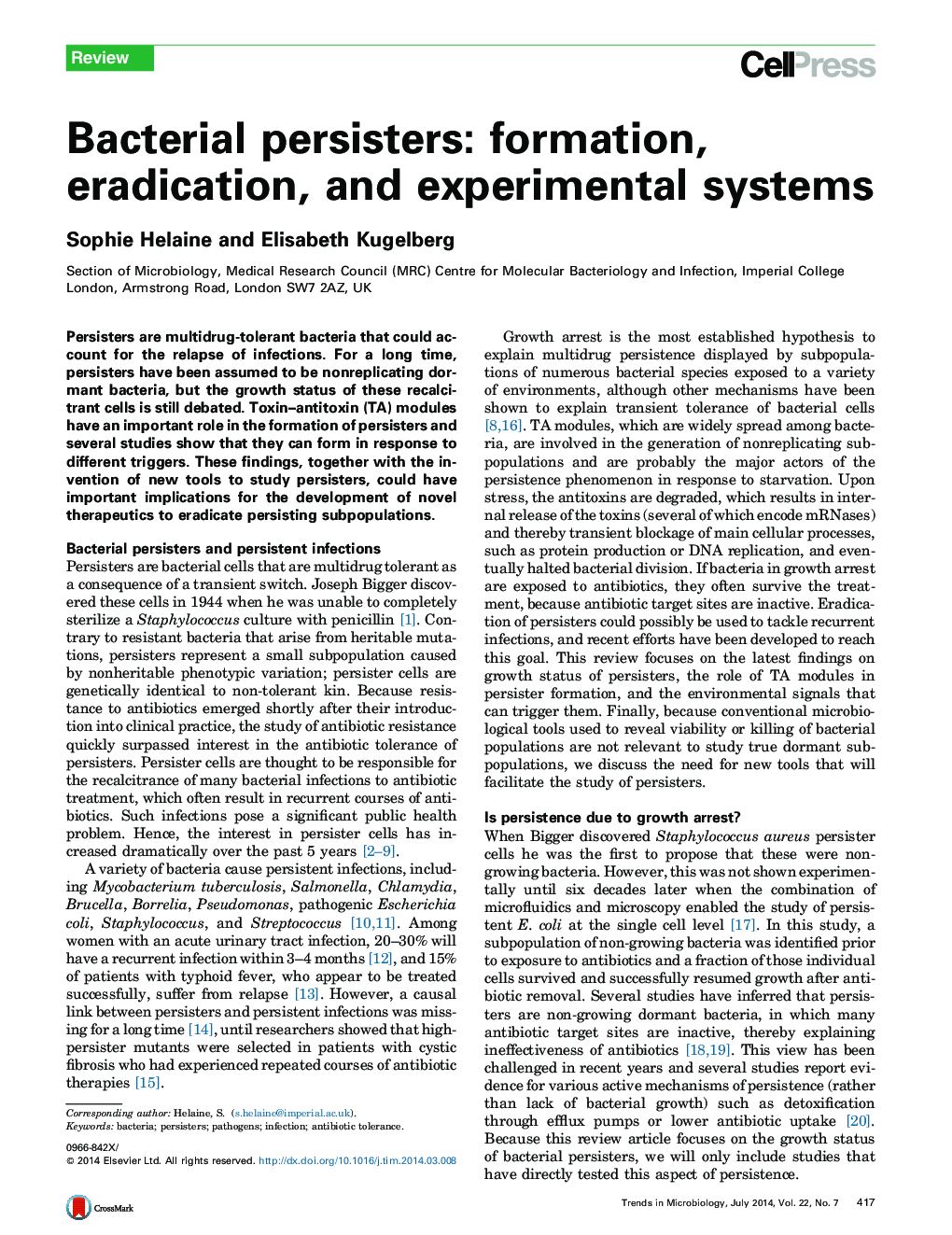| Article ID | Journal | Published Year | Pages | File Type |
|---|---|---|---|---|
| 3421943 | Trends in Microbiology | 2014 | 8 Pages |
•The majority of persisters are nonreplicating bacteria that are tolerant to multiple antibiotics.•Bacterial persisters are thought to be responsible for relapse of infections.•Toxin–antitoxin (TA) modules are involved in the formation of bacterial persisters.•Persister formation can be stimulated by triggers such as interaction with host cells.•Nonreplicating persisters have been visualized during infection of the host.
Persisters are multidrug-tolerant bacteria that could account for the relapse of infections. For a long time, persisters have been assumed to be nonreplicating dormant bacteria, but the growth status of these recalcitrant cells is still debated. Toxin–antitoxin (TA) modules have an important role in the formation of persisters and several studies show that they can form in response to different triggers. These findings, together with the invention of new tools to study persisters, could have important implications for the development of novel therapeutics to eradicate persisting subpopulations.
